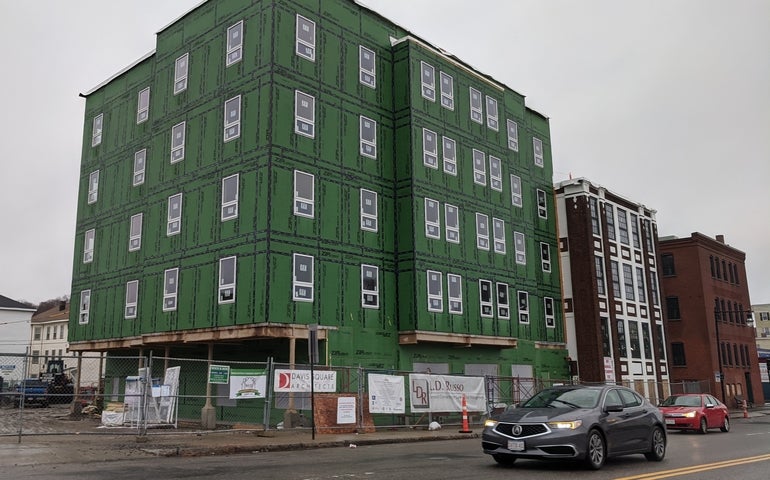Vaccines are being distributed, financial savings have brought pent-up demand, and federal stimulus aid has totaled the equivalent of roughly 17% of the American economy — with potentially far more still to come.
That’s enough for Michelle Meyer, a managing director and head of U.S. economics for Bank of America Global Research, to find optimism in the nation’s economy after the coronavirus pandemic ends. Gross domestic product had rebounded to three-quarters of its pre-pandemic levels, Meyer said, and unemployment, though still high, is closer to pre-pandemic levels than its peak last summer.
“The good news is that we’ve gotten out of that hole faster than many, many thought,” said Meyer, a keynote speaker for the Worcester Business Journal’s annual Economic Forecast Forum, held online Thursday in partnership with the Worcester Regional Chamber of Commerce.
Meyer’s optimism was shared by the event’s three panelists — in manufacturing, restaurants and life sciences — even if the continuing economic toll of the pandemic was unavoidable. Across Massachusetts, roughly 3,400 restaurants remained closed, for example, said Bob Luz, the president of the Westborough-based Massachusetts Restaurant Association. Of the industry’s 301,000 employees statewide before the pandemic, 38% remain out of work, he said.
“We’re the most decimated industry of all,” he said.
Confidence is starting to turn, however, particularly more broadly among state employers. A monthly business confidence poll conducted by Associated Industries of Massachusetts, an industry group, found more positivity than pessimism in its January poll than at any point since the pandemic started.
“That sends a strong signal for an economic recovery,” said John Regan, AIM’s president and CEO.
Even Luz is optimistic the restaurant industry can rebound quickly in April once outdoor eating is more practical and case levels are lower. Restaurants may be changed forever after an abrupt shift to take-out and outdoor dining, he said, but the industry is poised to have a strong second half of the year with a return to normalcy and a pent-up demand for spending on dining.
“Confidence is high and people are going to want to come back,” Luz said.
While restaurants have significant ground to make up, other industries have been relatively spared, panelists said. Manufacturing, the largest sector in Central Massachusetts when ranked by economic output, was broadly considered an essential business and continued through the pandemic without major job loss. Life sciences have boomed, particularly in and around Boston, making it the top metro area for the industry by both funding and total laboratory space.
“We’ve comfortably sat in the No. 1 position for years,” said Travis McCready, the executive director for U.S. life sciences markets for the Boston office of the real estate firm JLL, whose own rankings placed Boston at the top. The industry’s employment in the area rose 54% in the past five years through 2020, he said, with 45,000 total workers.
McCready, the former president and CEO of the Massachusetts Life Sciences Center, a state agency, said major life science firms are increasingly looking toward the Worcester area. Already, that roster includes AbbVie, LakePharma and WuXi Biologics, which is building its site on Belmont Street next to AbbVie. Names like those, along with UMass Medical School, Worcester Polytechnic Institute and incubator spaces such as Massachusetts Biomedical Initiatives, gives Worcester a strong base for further growth, he said.
“You’re on the radar screen,” McCready said.
The panelists also addressed another major national story in the past year: diversity and inclusion.
Regan touted member businesses making strides in hiring and promoting a more diverse group of workers, and Luz said restaurants, with a higher rate of female and minority workers, have long offered opportunities to start at entry-level restaurant positions and advance into management and ultimately ownership. Life sciences does not have the same track record, McCready said. Too many firms in the industry have left needed positions unfilled rather than hire a more diverse staff, he said.
To Meyer, an economy that more broadly benefits the most people would help the entire economy. Research, she said, has repeatedly shown income going into the hands of the most people circulates most widely back through the economy.

